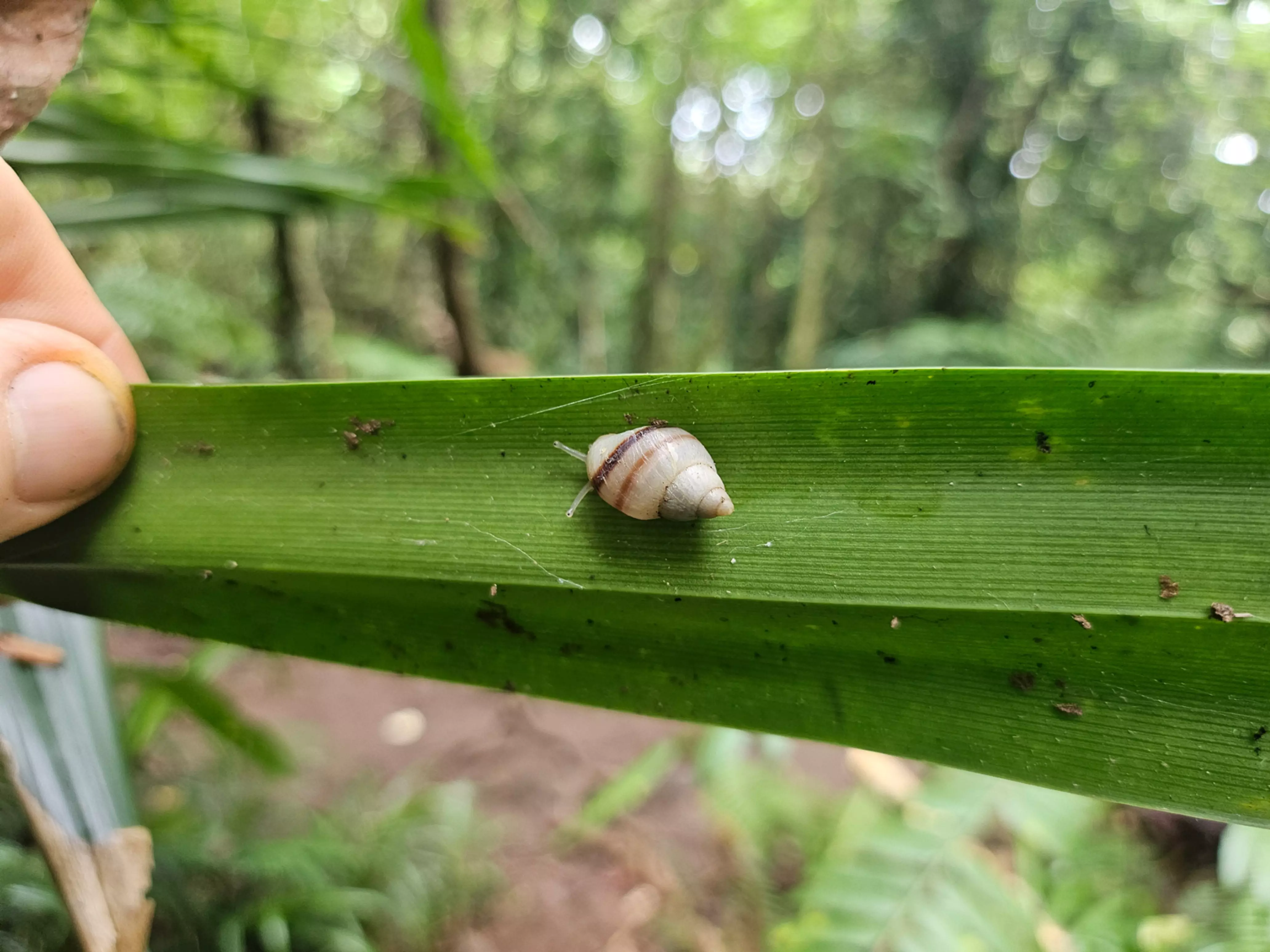A rare species of Polynesian tree snail once declared Extinct in the Wild has officially been downlisted, thanks to a decades-long conservation programme led by ZSL — the charity behind our conservation Zoo — and its global conservation partners.
The Partula tohiveana snail — wiped out in the wild due to the introduction of predatory carnivorous snails — has now been reclassified from Extinct in the Wild to Critically Endangered by the IUCN Red List, a global assessment of extinction risk, following the success of a reintroduction programme in French Polynesia.
This milestone follows the groundbreaking discovery last year of wild-born adult Partula tohiveana individuals in Moorea, confirming that the species is not only surviving but successfully breeding in its native habitat. The snails were part of carefully managed annual reintroductions led by London Zoo conservationists, in collaboration with the French Polynesian Government, the University of Cambridge, and conservationists at Bristol Zoological Society, Detroit Zoological Society, Marwell Wildlife, Poznan Zoo, Riga Zoo, the Royal Zoological Society of Scotland, Saint Louis Zoo, Sedgwick County Zoo, Whipsnade Zoo, Wild Discovery, Woodland Park Zoo, Wuppertal Zoo and Zoo Schwerin.
We first began breeding Partula snails in the 1980s, after their wild populations were decimated by the introduction of the invasive and carnivorous rosy wolf snail (Euglandina rosea). The dedicated programme saw conservationists care for and breed the species in carefully controlled conditions at London Zoo and zoos across the globe, before large numbers of snails were marked with UV reflective paint and carefully released back into their forest habitats in French Polynesia.
Our Senior Curator of Invertebrates, Paul Pearce-Kelly, who leads the international Partula conservation programme, said: “This is a landmark moment for Partula tohiveana and for decades of international conservation work. Seeing a species return from the brink after years of collaborative effort is exactly why we do what we do. Demonstrating how conservation in zoos is about so much more than maintaining insurance populations —this inspiring news shows our real-world impact and how we’re bringing some of the most vulnerable species back from the brink of extinction. As ZSL approaches its 200th anniversary next year, this is a fantastic success for our longest running conservation project.”
The discovery of wild-born adult Partula tohiveana individuals has not only been a key breakthrough for the decades-long project, proving that the species has re-established itself in the wild, but also paves a hopeful path for further downlistings of other Partula species being reintroduced as part of the programme.
Paul added: “This success is the result of incredible international collaboration and dedication. The resilience of these snails shows what can be achieved when conservationists, governments, and local communities work together to reverse biodiversity loss.”
Our Zoo Conservation Impact Manager, Fiona Sach, said: “This milestone is a shining example of what ZSL’s work as part of the Extinct in the Wild Alliance is striving to achieve — working for species that have been lost from their natural habitats and guiding them all the way back to viable wild populations. The downlisting of Partula tohiveana proves that conservation breeding programmes and carefully planned releases can restore species once thought lost. It’s incredibly rewarding to see these snails not only surviving but thriving in safe wild habitat again, and it gives us real hope for the many other species we are working to bring back from extinction.”
Your visit helps support our Extinct in the Wild Alliance and wider conservation projects. You can see Extinct-in-the-Wild Partula snails and learn about their reintroduction efforts at our Tiny Giants invertebrate house.
